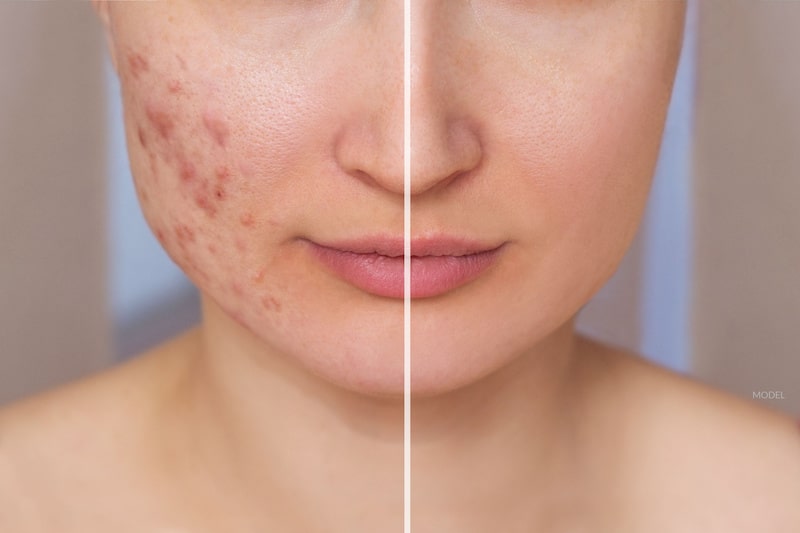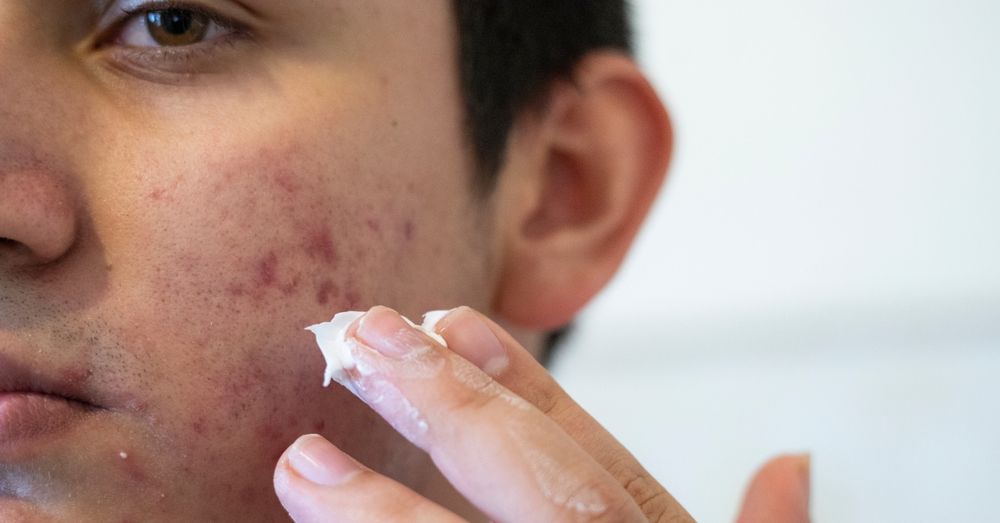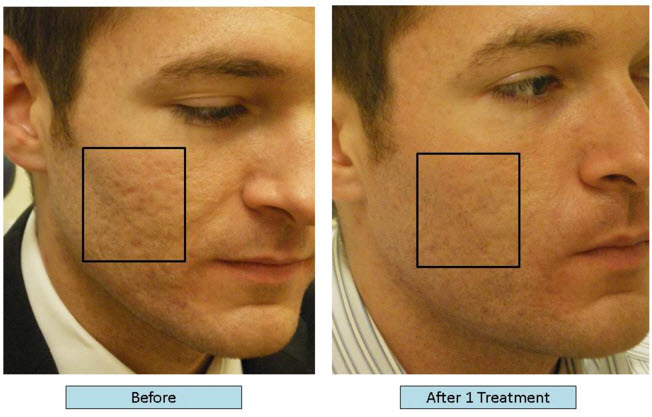Finest Acne Scars Treatment: Advanced Techniques for Easier Skin
Finest Acne Scars Treatment: Advanced Techniques for Easier Skin
Blog Article
Comprehending the Different Skin Problems and Effective Treatment Alternatives for Acne Scars
Acne marks represent a complicated interplay of skin disease that significantly influence people' self-esteem and overall skin health and wellness. Understanding the distinct types of acne scars-- atrophic and hypertrophic-- together with their underlying causes, is crucial for determining efficient treatment techniques. Various therapeutic options exist, ranging from advanced dermatological procedures to natural treatments. Nonetheless, the efficiency of these therapies typically pivots on personalized evaluations by qualified specialists. As we discover the landscape of acne mark management, it comes to be obvious that the trip toward clearer skin might include even more than simply topical remedies.
Sorts Of Acne Marks

On the other hand, hypertrophic scars arise from an overproduction of collagen during the healing procedure, leading to raised locations on the skin. These scars are usually firm and can vary in color, in some cases showing up red or darker than the bordering skin.
Recognizing these kinds of acne marks is critical for establishing an effective treatment plan - acne scars. Options might include chemical peels, laser treatment, microneedling, or facial fillers, customized to the specific scar type. A detailed assessment with a dermatologist can assist identify one of the most appropriate intervention, considering the person's skin type, mark seriousness, and general skin health
Reasons For Acne Scarring
Marking occurs as a result of the body's all-natural recovery reaction to inflammation and injury caused by acne sores. When acne forms, it sets off an inflammatory response, causing the release of numerous cytokines and growth variables that advertise recovery. Nonetheless, this procedure can sometimes lead to extreme tissue formation or poor repair service, leading to marks.
The main reasons for acne scarring consist of the severity of the acne itself, period of the sores, and individual skin kinds. Extreme inflammatory acne, such as cysts and nodules, is much more most likely to result in scarring due to deeper tissue damages. Additionally, inappropriate handling of acne sores, such as pressing or picking, can intensify cells injury and inflammation, raising the probability of scarring.
Hereditary predisposition also plays a significant duty; people with a household background of scarring are at a higher threat. Skin type and shade can influence scar formation, as darker skin tones might experience post-inflammatory hyperpigmentation, while lighter skin might develop atrophic scars.
Eventually, recognizing these reasons is important in managing acne and reducing the capacity for scarring.

Treatment Choices for Scarring
Effective therapy options for acne scarring differ relying on the type and seriousness of the scars. Normally categorized right into atrophic, hypertrophic, and keloid scars, these conditions call for customized methods for optimal outcomes.
For atrophic scars, which are defined by a loss of cells, therapies such as chemical peels, microdermabrasion, and laser treatment are commonly used. These techniques advertise skin renewal and boost collagen production, thus boosting skin structure. Subcision, a minimally invasive procedure, can also be efficient by separating fibrous bands below the skin.
Keloid and hypertrophic scars can be extra testing to deal with. Choices consist of corticosteroid shots to lower inflammation and flatten the marks. In many cases, cryotherapy or laser treatment may be recommended to lessen their look.
Surgical options are readily available for severe scarring, where excision or skin grafting may be required. It's crucial for individuals to seek advice from a skin doctor to analyze their specific scar kind and talk about the most appropriate treatment strategy. Incorporating numerous treatments often yields the most effective outcomes, making sure that each person's one-of-a-kind skin disease is addressed properly.
Natural Home Remedy and Natural Solutions
All-natural options and natural remedy can provide an easily accessible strategy for people seeking to enhance the appearance of acne scars (acne treatment for sensitive skin). Numerous components located in the home kitchen have actually demonstrated prospective advantages in boosting skin structure and advertising healing

Another efficient alternative is lemon juice, which serves as a natural exfoliant and can lighten hyperpigmentation. It should be made use of carefully, as it might cause photosensitivity. Oat meal masks are additionally helpful; their gentle exfoliation can aid remove dead skin cells while comforting irritability.
Necessary oils, such as tea tree oil and lavender oil, can further sustain scar recovery as a acne and acne scars treatment result of their antimicrobial properties. It is critical to perform a patch examination prior to applying any treatment to make certain there are no damaging reactions. These all-natural remedies can be a corresponding approach in the trip to diminish acne marks.
Preventing Future Scarring
Embracing an aggressive strategy to skincare can considerably reduce the threat of developing future acne marks. Regular cleaning, exfoliation, and hydration can help keep skin health and wellness and avoid clogged up pores.
Furthermore, preventing the temptation to squeeze or select acne sores is important, as this can lead to inflammation and subsequent scarring. Instead, people should concentrate on applying topical therapies that advertise healing and decrease swelling. Components such as salicylic acid, benzoyl peroxide, and retinoids are recognized for their efficiency in handling acne and decreasing scars.
Sunlight defense is one more important part; direct exposure to UV rays can impede and dim marks recovery. Utilizing a broad-spectrum sun block daily can alleviate these effects.
Finally, preserving a healthy diet rich in antioxidants and staying hydrated assistances skin regrowth. By implementing these safety nets, individuals can significantly lower their danger of future scarring and promote general skin health and wellness.
Final Thought
In final thought, a comprehensive understanding of acne scars, encompassing both hypertrophic and atrophic kinds, is necessary for effective treatment methods. Examination with a skin doctor continues to be crucial to create personalized strategies that consider private skin types and scar seriousness, ultimately boosting the efficiency of scar monitoring methods.
Acne marks stand for an intricate interaction of skin conditions that substantially influence people' self-confidence and total skin wellness. The 2 main categories of acne scars are hypertrophic and atrophic scars. These scars are further categorized right into 3 subtypes: ice choice scars, which are narrow and deep; boxcar scars, which are wider and have well-defined edges; and rolling scars, which create a wave-like look due to uneven skin texture.
An extensive consultation with a skin specialist can assist identify the most proper treatment, taking right into account the person's skin kind, mark severity, and overall skin health.
Consultation with a dermatologist remains necessary to develop individualized strategies that consider specific skin kinds and mark intensity, inevitably improving the effectiveness of scar administration strategies.
Report this page